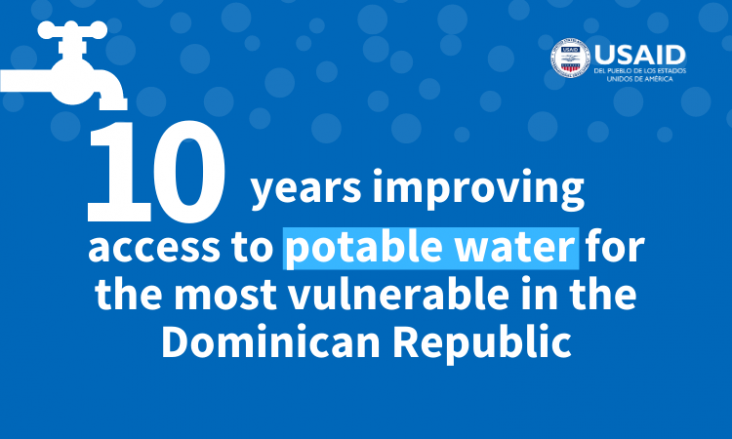Speeches Shim

By: David Maher & Esther Zeledon, PhD
Water is vital for life, and access to safe, clean water is a basic human right. For nearly six decades, the United States, through the U.S. Agency for International Development (USAID), has partnered with the Dominican Republic to improve quality of life for the most vulnerable, investing over US$80 million in the last decade alone to ensure access to clean water, sanitation, and health services. According to the Center for Disease Control and Prevention (CDC), during the Coronavirus Disease 19 (COVID-19) pandemic, keeping hands clean is especially important to help prevent the virus from spreading and having access to water is an essential aspect.
Livelihoods and economic growth in the Dominican Republic rely on the health of its natural resources and require a robust water supply. Working hand-in-hand with local governments, communities, and the private sector, USAID has helped increase access to safe and affordable drinking water and improve sanitation, health and hygiene practices across the Dominican Republic. Strengthening the capacity of the Dominican Republic to manage its water resources, USAID has supported governance, finance, and effective management systems to ensure a reliable and resilient water supply.
Good management of water yields additional benefits. USAID's work to create a reliable water supply in the DR has increased food security and helped reduce extreme poverty and undernutrition, making communities and government better able to promote family health and equitable economic opportunities. USAID programs for farmers and their families to improve agricultural techniques have also bolstered the consistent production of nutritious food, helping reduce disease and health care costs, particularly for children and pregnant women.
USAID has supported Dominican farmers and other stakeholders in the Yaque del Norte river watershed - one of the country’s most important rivers - to reduce water contamination and strengthen farming techniques to reduce recovery time from climate shocks - helping ensure their livelihoods and food supply. Utilizing an innovative approach known as “climate smart agriculture” focused on sound crop management methods - including soil and water conservation, organic production, integrated pest management, climate risk reduction and farm diversification - farmers can improve productivity, increase income, and enhance resilience to climate shocks. The success of these programs has led to agricultural export promotion of tropical fruit and winter vegetables to the U.S., Puerto Rico, and Europe, providing an additional source of income.
Humans take care of the things they value. The benefits of sound environmental management in the Dominican Republic has led farmers to promote watershed restoration activities on unused lands resulting in an increased water quality and quantity in several watersheds across the country.
In 2007, tropical storms devastated the community of Valle Encantado in the Santiago province. Nearly 100 homes were destroyed, and the entire community was left without water or sanitation services. In coordination with the Santiago municipality and the water utility, USAID improved drainage to channel runoff and created wetland filters to treat and discharge wastewater. The community was empowered to manage these systems, allowing continued self-reliant and sustainable operations into the future.
USAID recognizes the potential environmental and social impacts of development challenges. USAID's work with water and agriculture at the community level is thus complemented by efforts downstream to strengthen coral and mangrove restoration and protect communities from storm surges.

Comment
Make a general inquiry or suggest an improvement.